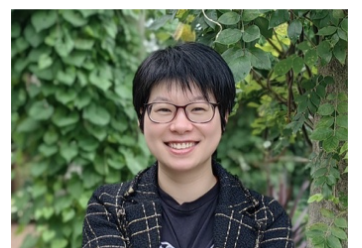Translational Multimodal Bioelectronics: From Biosymbiotic Devices to Clinically Integrated Digital Health
Abstract: Advances in soft materials, low-power circuits, and wireless energy harvesting now allow imperceptible, long-lived bioelectronic systems that are practical beyond the lab bench. This talk presents translational pathways for multimodal bioelectronics that bridge engineering innovation with clinical impact. We highlight epidermal and implantable platforms that acquire high-fidelity biosignals—EEG/IMU for neonatal seizure risk and sleep, ECG–SCG–PCG for cardiopulmonary coordination, and oral ISFET-based pH sensors for chemo- physiological context—and describe the materials, packaging, and system architectures that enable stable, week-scale wear. Beyond device physics, we emphasize translation: firmware that guarantees sub-10 ms synchronization across channels, analytics pipelines that integrate signal quality indices with explainable ML models, and HIPAA-compliant clinician dashboards that transform continuous raw streams into actionable insights. Case studies from NICU deployments and adult cohorts illustrate how biosymbiotic devices can support seizure detection, brain–heart dysregulation screening, and personalized therapy planning. By uniting materials, systems, and AI with real clinical use, these efforts outline a roadmap for multimodal digital healthcare that is both technically rigorous and translatable to patient care.
References: PNAS June 2025 122 (23) e2501220122; Nature Medicine (under review); Nature BME (under submission)
Date and Time
Location
Hosts
Registration
-
 Add Event to Calendar
Add Event to Calendar
Loading virtual attendance info...
- Contact Event Host
-
-
Bernard Herrera-Soukup
IEEE SFBA MEMS & Sensors Chapter, Chair
-
Speakers
Assist. Prof. Yayun Du of Vanderbilt University
Biography:
Bio: Yayun Du is an Assistant Professor of Electrical & Computer Engineering at Vanderbilt
University, where she leads a research group at the interface of multimodal wearable/implantable
bioelectronics, low-power wireless systems, and edge-AI analytics. Her team designs conformal
sensors (EEG/IMU, ECG–SCG–PCG, oral ISFET pH, and related platforms), builds synchronized
firmware and secure data pipelines, and develops clinician-facing tools for longitudinal,
explainable monitoring. Dr. Du’s devices have advanced to IRB-approved studies in NICU and
ambulatory settings, with deployments in five countries and data from ~1,000 participants
spanning sleep, cardiovascular, neurological, vocal/behavioral, and oral health cohorts; two of her
sensors are currently under commercialization. Prior to Vanderbilt, she was a postdoctoral scholar
in the Rogers Research Group at Northwestern University. She serves as an Associate Editor for
ICRA 2025 and has published across biomedical engineering, robotics, and digital health (e.g.,
PNAS and leading IEEE venues). Her SYMBIO-X lab’s mission is to translate week-scale, 24/7
biosignal fusion into actionable, patient-centered care.
Address:United States
Agenda
6:50 - 7 PM: Registration
7-8 PM: Talk and Q&A



